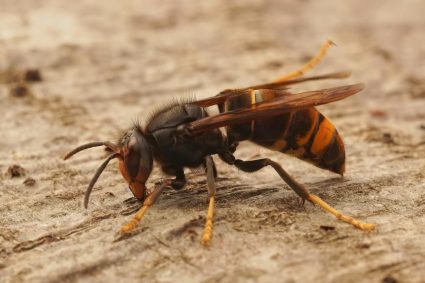
Lilies are a staple in many gardens due to their striking beauty and lush blooms. However, their allure isn’t just limited to humans – rabbits find them equally appealing. If you’re tired of finding your lilies nibbled down to the ground, you’re in the right place. This comprehensive guide will provide you with multiple methods to keep rabbits away from your precious lilies.
Keeping rabbits away from your lilies involves a multifaceted approach. You can use repellents, install fencing, plant rabbit-resistant plants, use taste deterrents, implement scare tactics, and employ natural deterrents. If rabbits have already started nibbling on your lilies, install fencing, apply repellents, and eliminate potential hiding spots to deter further damage. With patience and persistence, these strategies can significantly reduce the likelihood of rabbit damage.
Why Rabbits Love Lilies
Rabbits are attracted to lilies for their bright colors and tender foliage. Despite the fact that lilies can be toxic to rabbits, causing stomach upset, rabbits still consume them, especially when other food sources are scarce.
Effective Methods to Protect Lilies from Rabbits
Now that we know why rabbits love lilies, let’s dive into the various strategies to deter these furry pests.
1. Using Repellents
One of the most popular ways to deter rabbits is by using repellents. These can either be homemade or purchased commercially. Homemade repellents often include ingredients such as powdered red pepper or talcum powder, which rabbits dislike. Commercial repellents, like Liquid Fence or I Must Garden Rabbit Repellent, use ingredients like rotten eggs, garlic, or mint to deter rabbits.
2. Installing Fencing
A physical barrier can often be the most effective way to keep rabbits away from your lilies. A 2-foot high fence with 1-inch mesh chicken wire should suffice. Bury the bottom 6 inches of the fence and bend it 90 degrees outward to prevent rabbits from digging under it.
3. Planting Rabbit-Resistant Plants
Surround your lilies with plants that rabbits tend to avoid such as alliums, lavender, and black-eyed Susan. These plants’ strong odors can deter rabbits from entering the area where your lilies are planted.
4. Using Taste Deterrents
Rabbits have a discerning palate, and they dislike certain tastes. Try applying taste repellents like cayenne pepper, soap, or human hair directly to the plants or around the garden perimeter.
5. Implementing Scare Tactics
Rabbits are timid creatures, and certain objects can scare them away from your garden. Try using motion-activated sprinklers or other devices to startle rabbits and deter them from approaching your lilies.
6. Employing Natural Deterrents
Sprinkling blood meal on the soil surrounding your lilies can effectively repel rabbits, as they dislike the smell. Clumps of pet fur or human hair around the garden can also act as a deterrent.
Commercial Rabbit Repellents
Commercial rabbit repellents can be highly effective when used correctly. Look for repellents that use natural ingredients, are long-lasting, and have positive customer reviews. Remember to reapply repellents regularly, especially after rain or significant new plant growth, to ensure their effectiveness.
Garden Design Alterations
Making your garden less appealing to rabbits can be an effective long-term solution. This can include planting rabbit-resistant plants, using repellents, or installing visual deterrents like metal pinwheels or owl statues.
What to Do if Rabbits Have Already Started Eating Your Lilies
If you discover that rabbits have already started nibbling on your lilies, don’t panic. Install fencing, apply repellents, and eliminate potential hiding spots to deter further damage. If the rabbits haven’t dug up the bulbs, your lilies should still survive and produce new growth next year.
Conclusion
Keeping rabbits away from your lilies can require a multifaceted approach. No single method is 100% effective in all circumstances, but combining these strategies can significantly reduce the likelihood of rabbit damage. With patience and persistence, you can protect your lilies and enjoy their beauty all season long.
Frequently Asked Questions
How often should I reapply homemade repellents?
Homemade repellents should be reapplied every few days and after heavy rain. They are not as long-lasting as commercial repellents, so regular application is key.
Can I use any soap for taste deterrents?
It’s best to use non-toxic, biodegradable soaps to avoid causing harm to the environment and other garden creatures. Shavings from bars of soap can be spread around the garden or hung in mesh bags near the lilies.
Will scare tactics harm the rabbits?
Scare tactics like motion-activated sprinklers or visual deterrents are designed to frighten, not harm, the rabbits. They create an environment that rabbits find uncomfortable, encouraging them to stay away.
What other plants are considered rabbit-resistant?
In addition to alliums, lavender, and black-eyed Susan, other rabbit-resistant plants include yarrow, sage, rosemary, and peonies. These plants either have a strong smell or taste that rabbits find unappealing.
Is blood meal safe to use around other pets?
While blood meal can effectively deter rabbits, it can be harmful if ingested by dogs or cats. If you have pets, it’s best to use it sparingly and monitor your pets when they’re in the garden.
How can I repair the damage done by rabbits to my lilies?
If the rabbits have only nibbled on the leaves and stems, the lilies should recover with proper care. Ensure they get enough water and nutrients. If the bulbs have been dug up, replant them and protect them with fencing or repellents.









